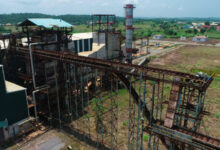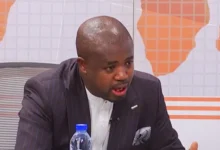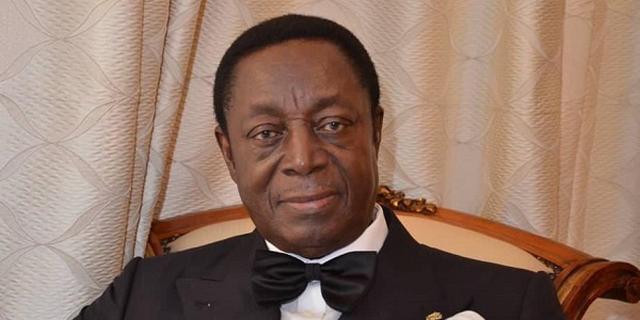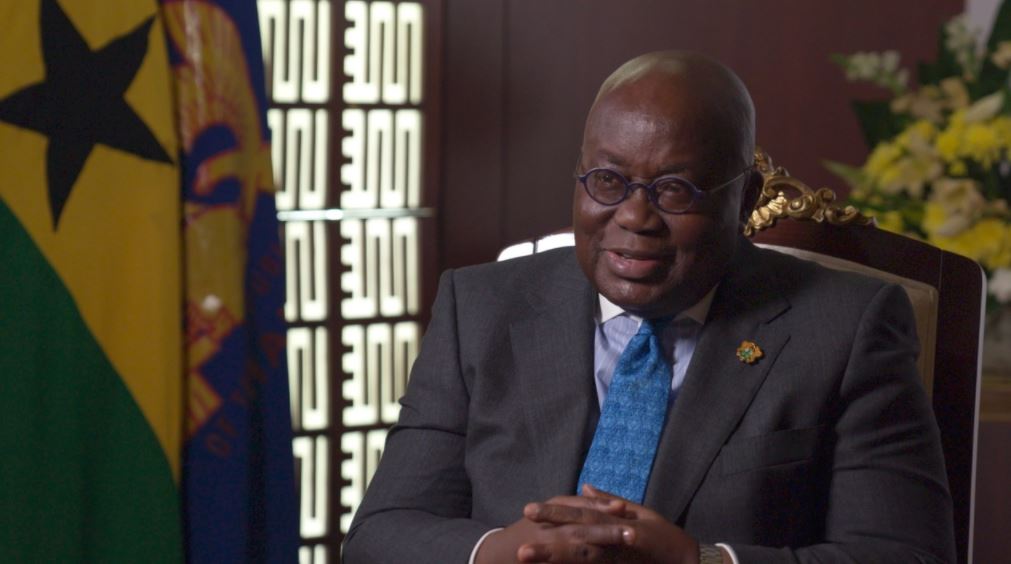Alan Kyerematen Officially Announces Presidential Ambition, Outlines Transformational Plan For Ghana
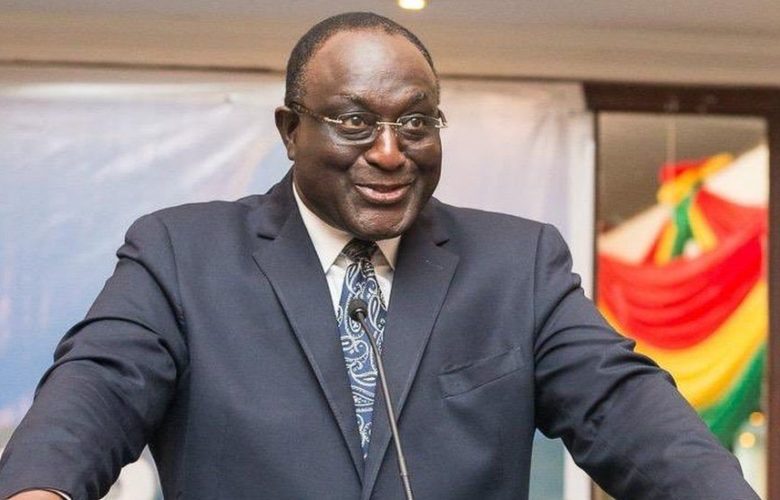
The outgoing Minister for Trade and Industry, Alan Kwadwo Kyeremateng has officially announced his decision to aspire for the flagbearers position of the New Patriotic Party (NPP).
Alan will officially leave office as a cabinet Minister on January 16 following the acceptance of his resignation by President Akufo-Addo last week.
His resignation was in accordance with the constitution of the NPP for government appointees seeking to contest such positions.
“I wish to use this platform to formally announce my decision to contest the flagbearership of the New Patriotic Party when the Party officially opens nominations for that purpose”, he said in his speech on Tuesday.
He admitted he varies in opinion over some of the approaches of the President but noted he would continue the strong policies of the administration if given the nod in the primaries and subsequently in 2024 by the nation.
“The President has laid a strong foundation for the socioeconomic development of our country, although I believe there are things that could have been done differently. My vision is to build a superstructure on this foundation that will bring prosperity to our nation.”
Great Transformation Plan (GTP)
Alan, like many others, sees the economy of Ghana as fragile and has thereby fashioned what he calls the Great Transformation Plan (GTP) as a solution.
He is hopeful this plan will deny Ghana the unpleasant opportunity of going to the International Monetary Fund (IMF) for the eighteenth time and cushion the country against external forces like the COVID pandemic and the Russia-Ukraine war that may arise in the future.
“To avoid going back to the IMF, we need a new Plan. A Plan that will lead us to a more self-reliant and resilient economy. That Plan must move Ghana from Stability and Growth to Transformation.”
He said this plan will span from 2025 to 2030.
The GTP Include:
1. A Strong Macroeconomic Environment: The success of the GTP will depend primarily on strong macroeconomic fundamentals, which will include among other things, a stable currency, low inflation, sustainable debt levels, revenue optimization and tight expenditure control to guarantee fiscal balance, low competitive interest rates, strong external reserves backed by high levels of liquidity to support the financial sector.
To a large extent, the IMF support programme when fully executed, will create the appropriate conditions that will underpin the Great Transformational Plan.
2. A New Agricultural Revolution (NAR) for Ghana: The NAR will be based on five critical elements.
i. Optimizing Value to Farmers by the establishment of Farmer-owned Large Scale Commercial Farms and Processing Facilities which will bring the full benefits of the agriculture value chain to farmers.
ii. Introducing Technology and Innovation into Agriculture, through Research & Development (R&D) in Agronomy, Mechanization, Irrigation, and Plantation Management. This will build on the foundation laid by the Planting for Food and Jobs and Planting for Export and Rural Development (PERD) Programmes. Our farmers cannot be competitive without technology and innovation.
iii. The establishment of Licensed Food Distribution and Marketing companies by the Private Sector throughout the country at the district level, to be supported by the Government. These companies will constitute a vital link between farmers and Market Queens in the urban and peri-urban areas. It will be complemented by the introduction of a digitalized food distribution and marketing online platform which will connect producers to buyers and consumers.
iv. The strengthening of the Ghana Commodity Exchange as the marketplace for all actors in the Agricultural value chain.
v. Deepening the current regime for lending and financing for the agricultural sector.
vi. Enhancing the de-regulation of the Cocoa sector by deepening private sector participation in the buying and marketing (including export) of Cocoa.
vii. Mass Citizens participation in Agriculture by introducing an ‘Operation Own a Farm’ programme for the Ghanaian citizenry in general.
3. Industrial Transformation: This will build on the successes of Government’s Ten Point Industrial Transformation Programme including the One District One Factory (1D1F) initiative; the establishment of Strategic Anchor Industries to diversify the economy beyond Cocoa and Gold e.g the Automobile assembly, Garment and Textiles, Pharmaceuticals and the Petrochemical industry; enhancing the growth and development of Small and Medium Enterprises; establishment of Industrial Parks and Special Economic Zones; and supporting Domestic Retail Trade and Distribution.
4. Accelerated Infrastructure Development: Promoting Private sector financing for public infrastructure such as Roads, Railways, Ports and Harbours, Water Supply Systems, Public Housing etc, which will reduce Government’s exposure to the financing of such infrastructure projects.
5. Digital Mainstreaming: Digitalization will be mainstreamed in all Government and Public sector activities, building on the current work led by the Ministry of Communication and Digitalization.
6. Energy Security and Diversification: Greater emphasis to be placed on developing renewable sources of energy, by fast-tracking the execution of Government’s energy transition strategy, including but not limited to nuclear and hydrogen energy.
7. Decarbonization and Climate Resilience: Scaling up Government’s current efforts at reducing Ghana’s carbon footprints and facilitating access to the carbon trading markets, as well as establishing mechanisms to strengthen the country’s preparedness against the negative effects of climate change.
8. National Security and Defence Optimization: Deploying resources to strengthen National Security and Defence Mechanisms and Infrastructure, to deal substantively with emerging security threats and challenges, particularly in the Sahalian region.
9. Downsizing Government: The architecture of Government will be overhauled by consolidating some existing Ministries, Departments and Agencies. This will mean running a lean Government structure that will ensure operational efficiency and effectiveness in the delivery of Government services.
10. Strategic Engagement with the International Community: Ghana’s diplomatic and economic relations with the International Community under the GTP will be predicated on the principle of ‘positive neutrality’, based on the strategic interests of Ghana, as well as our shared commitments for the preservation of peace around the world and respect for humanity.
Details of the GTP, he said, will be relayed later.
In materialising the plan, Alan said seven things will be upheld. These include:
1. The primacy of the Private Sector in our national development agenda. The Private Sector, both domestic and foreign, formal and informal has to be at the centre of our transformational agenda. The Government’s focus must be to facilitate the process of making our private sector competitive, by creating an enabling environment for businesses.
2. Attitude to work and enforcement of discipline. We as a people should appreciate the need for discipline in all spheres of our national lives and change our attitude to work. Whether you are working for the Private sector or for Government, as a worker, you are not doing a favour to your employer. It is your duty to ensure that you earn your living from the efforts of your labour.
3. Corruption and petty theft or thievery, particularly from the public purse, deny our country the benefit of utilizing its tax revenue and other resources for the development of our country.
4. The arrogance of power has been a major obstruction to progress in our country. People in positions of authority must understand that leadership is an opportunity to serve the people, and not to lord over them. In servant leadership, humility is an asset and not a weakness.
5. Passion for excellence. As a country we must celebrate competence and excellence and not mediocrity.
6. As a people, we must focus more on getting things done than talking. Ghana is gradually becoming a NATO country – “No Action Talk Only”. We need to remember that the use of time is a zero-sum game. What Ghana needs now are solutions and actions not debates.
7. And last but not the least, our politics in Ghana is too divisive. This keeps out some of our best talents in offering themselves for political appointments. Yes, we pride ourselves as being the bastion of democracy in Africa, but that does not mean that we should allow partisan politics to destroy our collective interests.
Source: opemsuo.com/Hajara Fuseini


